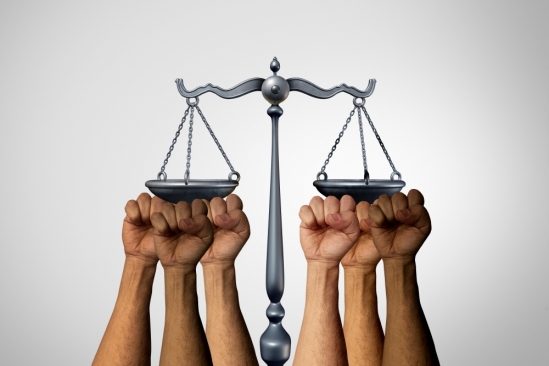
One thing that gets my blood boiling almost more than anything else is Black men who are afraid to be themselves. In general, I really dislike when any individual is afraid to be himself or herself. I am, however, concentrating on the Black male in this piece. People who are afraid and/or unwilling to be themselves suffer from low self-esteem or problems with their self-esteem. In Black Skins, White Masks, Frantz Fanon communicates the provenance of the serious problems with Black masculinity, originating from the humiliating and barbaric treatment of Black men during slavery. Although I still see some of the impact that the legacy of slavery has on Black masculinity, I have a news flash for you Black men: slavery is over! No longer should you be allowing the problems that racist White slave owners created for Black masculinity to affect your insecurities about your sexuality in the postmodern epoch.
Many Black men have a difficult time admitting that they are gay or bisexual because of the high expectations of the socially conservative Black community. On matters of sexuality, I would have to say that the Black community is ultra-conservative. Many Black men have been reared in families that are fervently Christian and have been taught that being gay is a nasty and sinful thing. The Black community places such unrealistic expectations on Black men’s masculinity because it expects them to be the hypermasculine mandingo that racist slave-owning White women and men created. It’s unrealistic for a man to be hypermasculine but great pressure within and outside of the Black community demands that the Black man be hypermasculine.
Unfortunately, too many Black men have adopted and embraced the hypermasculine expectations that have been placed on them. This has led to many Black men being thugs (or trying to pose as thugs), the academic underachievement of many Black men, many being imprisoned, many getting HIV/AIDs, significant Black male poverty, high drug use, great domestic violence, increased gang membership, and I could go on and on. Too many Black males have not resisted the negative expectations placed on them by a society that has not wanted them to succeed. Many Black men have not taken the time to seriously consider their sexuality or sexualities. For example, many Black men who strive to be perceived as “pimps” have not given themselves an opportunity to have a long-lasting and meaningful relationship with a woman.
Regrettably, the Black Church has not been there to help Black men to develop a healthy sexuality. The Black Church has proffered too simplistic responses to the needs of men and their sexuality. Basically, the Black Church has simply told Black men not to be gay, get married, don’t fornicate, don’t masturbate, don’t look at pornography, be the head of their households, and don’t beat their wives. Black male sexuality, however, requires much more than that. The Black Church has simply been unwilling to deal with sexuality in a sophisticated, in-depth, and educated way. Many Black preachers are still simply spitting rhymes instead of nurturing, teaching, and cultivating a healthy Black male sexuality, a sexuality that resists the hypermasculinity that has been engendered to destroy Black men.
Many Black women are also responsible for Black men having to take on identities that are truly not authentic. Many Black women have placed unrealistic expectations on Black men: they want them to be both successful thugs and successful scholars—it’s simply not possible! One of the identities is going to cause the other to fail. Many Black women will say that they want a man who can take care of them, but by selecting a thug they often just get a baby and a baby’s daddy who is in prison. Many Black women think that the Black man who is serious about his education is gay; thus, not allowing him to be the “thug” they desire him to be. When a Black man dresses professionally and does not “bust slack,” then many Black women think he is gay—they will say, “His gay self—with them tight pants on.” Wake up you dummies, this is the type of man who can provide you with the home, economic stability, and quality family you long for.
The man busting slack is a man headed to prison, and this is the type of man you should be more concerned with being gay because his busting slack represents prison culture. He is advertising that his booty is available, and without a doubt his booty will be available when he gets to prison and has a ton of men waiting to get inside of that booty. Now, tell me, how much of a thug is he now? If you would open your eyes you will see that many of the Black men who are busting slack are the main ones giving you sexually transmitted diseases (STDs). Be more sophisticated about how you perceive Black men—we are more complex than you make us out to be.
To you Black men who know you are gay but elect to have sex with women just to cover up your homosexuality, be real with yourself and stop doing this. I am not saying that you have to go ahead and admit to the world that you are gay, but stop commodifying and reifying women as your trophies to cover up the reality that you are afraid to be who you are. Many Black men are married to women, dating women, and having sex with women just because they are afraid of what their families and friends are going to think about them if they don’t have a woman or women in their lives who they are sexually involved with. I often see Black men, whether they are pretending not to be gay or not, denying themselves of the lives they want to live because they feel obligated to be with women who they are really not interested in being with sexually. Many Black men have devoted their lives to proving how masculine they are by having sex with so many women, but they are denying themselves of who they really want to be: simply themselves.
In no way is this article written to try to suggest that all men are gay or bisexual, but what it does suggest is many Black men are denying themselves the opportunity to simply be themselves because of their low self-esteem or problems with their self-esteem. I have resolved to pen a series of on this topic, “Black Men Masquerading,” to address the aforementioned issues and others in a little more depth. I believe that addressing the various ways in which many Black men masquerade—not just with their sexuality—is important to ameliorating the progression of Black men in the postmodern moment. As always, I hope that there is something I have said in this article and in the future articles that will be written during this series that will unsettle, unnerve, and unhouse you. More importantly, I hope this article and this series will help at least one person. If I am able to help at least one person, then I feel like I have done my job.
Antonio Maurice Daniels
University of Wisconsin-Madison




